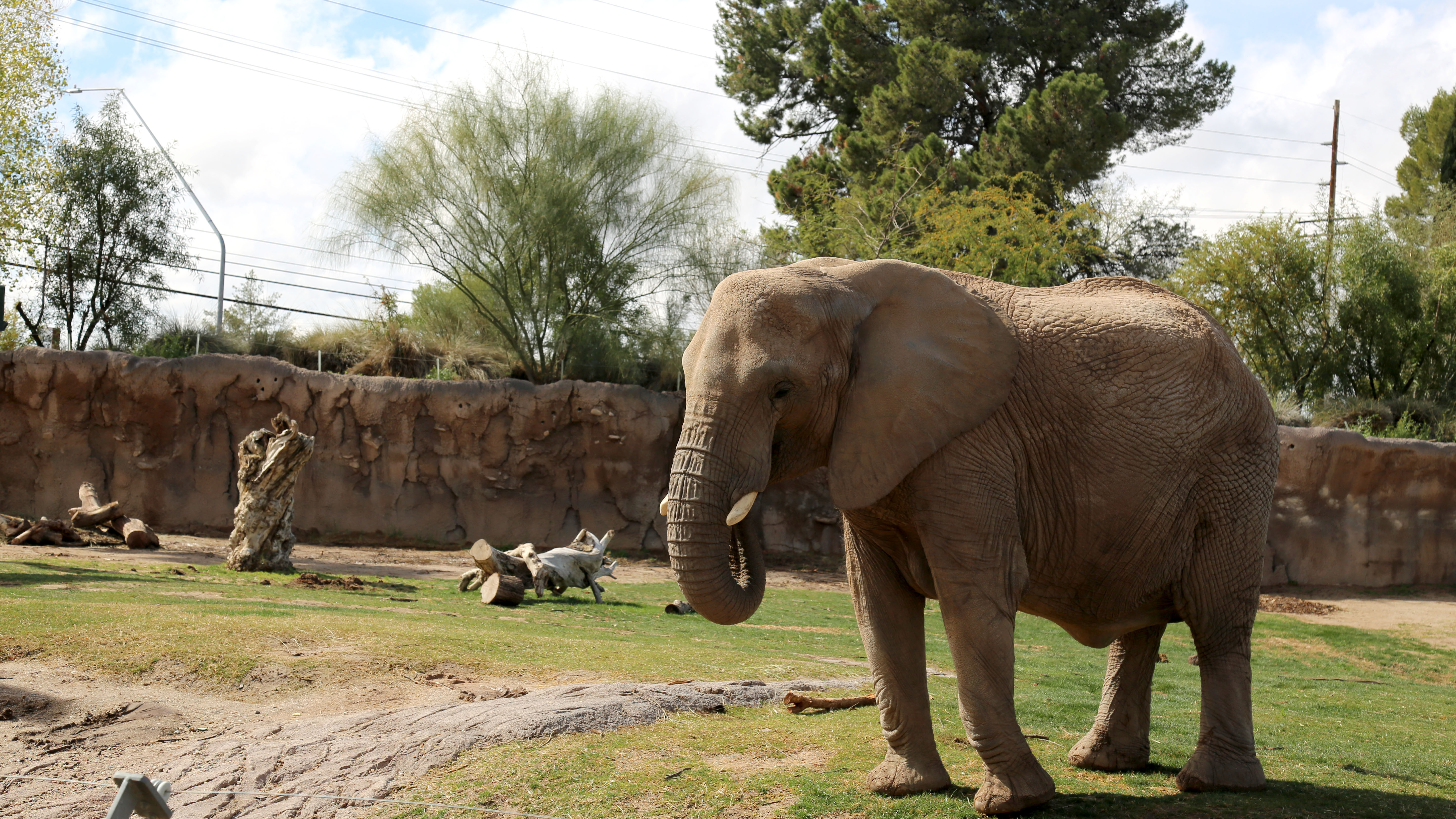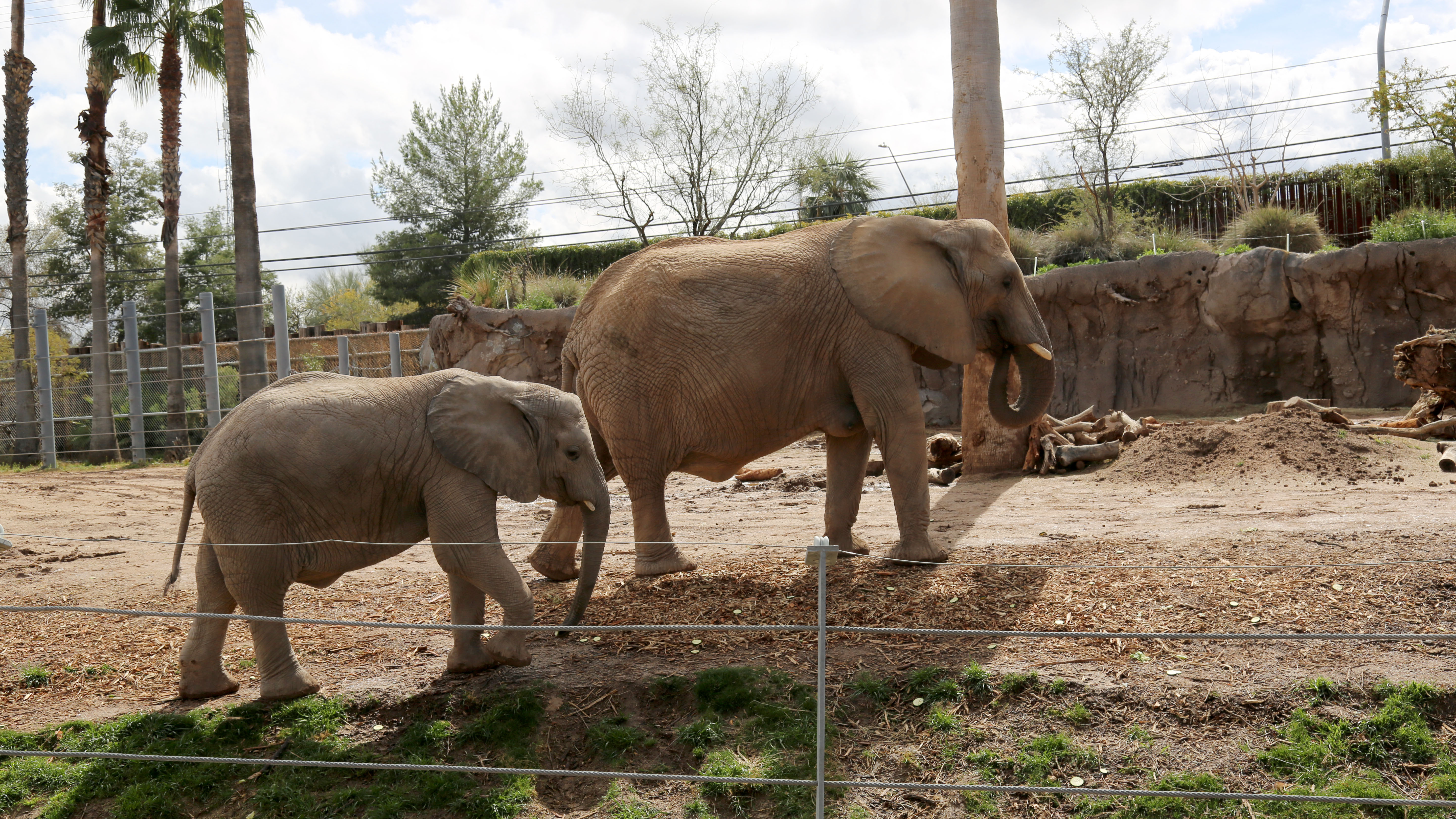An Elephant Calf Is Due At Reid Park Zoo In 2020

The African elephant herd at Reid Park Zoo is growing: Semba is pregnant!
Female elephant Semba is 29-years-old, pregnant with her fourth calf, and due to deliver in the Spring of 2020.
African Elephants in the Wild
The birth of an African elephant is a big deal: The International Union for Conservation of Nature (IUCN) classifies African elephants as a vulnerable species. Threats to elephants include habitat loss and poachers killing elephants for their ivory. Reid Park Zoo Conservation Fund is proud to partner with Dr. Charles Foley and the Tarangire Elephant Project.
Dr. Foley works to create corridors for elephants to move safely through Africa, and to prevent poaching. He works with village game scouts to carry out anti-poaching patrols covering more than 4,500 miles.
In his annual report, Dr. Foley said the Tarangire elephants are thriving in an environment with virtually no poaching and a growing population, which continues to expand. In 2018, he reported 55 births in his research area. The Tarangire Elephant Project has made a great conservation impact by protecting elephants in their habitat, and Reid Park Zoo is proud to support this project.
Semba’s Pregnancy
Semba came from the San Diego Zoo’s Safari Park in 2012 for the opening of Expedition Tanzania, Reid Park Zoo’s seven-acre elephant habitat. She gave birth to Nandi, the first elephant born at Reid Park Zoo, in 2014. Male elephant Mabu, who also came from the Safari Park, is the father to all of Semba’s calves.
Semba is currently a healthy weight of 6,960 pounds and on track to have a healthy pregnancy.
“The main thing to look out for in elephant pregnancy is excessive weight gain,” said Dr. Alexis Moreno, Reid Park Zoo Veterinarian. “This is similar to concerns for human pregnancy.”
Elephant gestation is between 22 and 24 months, and Semba is about halfway through her pregnancy.
To care for Semba while she’s pregnant, the Animal Care Staff are watching Semba’s weight, her vitamin and mineral intake, and checking her bloodwork regularly. The entire herd receives this exact care regularly, but in Semba’s case, it provides the animal care staff with the information they need to monitor Semba as she progresses through her pregnancy.
“Semba is a great mother,” said Reid Park Zoo Director of Zoological Operations Dr. Sue Tygielski. “She has looked after her calves closely, and monitors them as they play and grow together.”
Nandi is Going to be a Big Sister!
In 2014, Semba gave birth to Nandi at Reid Park Zoo! Nandi was the first elephant born at Reid Park Zoo. She lives at the Zoo with her parents, Semba and Mabu, her brother Sundzu, and Lungile, another adult female African elephant.
Although Nandi isn’t going to be the youngest elephant in the herd for long, she is milking that position while she can.
“Nandi is still nursing,” Tygielski said. “That’s totally normal, but we do expect Semba will not allow that to continue too long as she will have another calf to care for soon.”
You can visit Nandi, Semba, Mabu, Sundzu, and Lungile at Expedition Tanzania at Reid Park Zoo any day between 9 a.m and 4 p.m.

